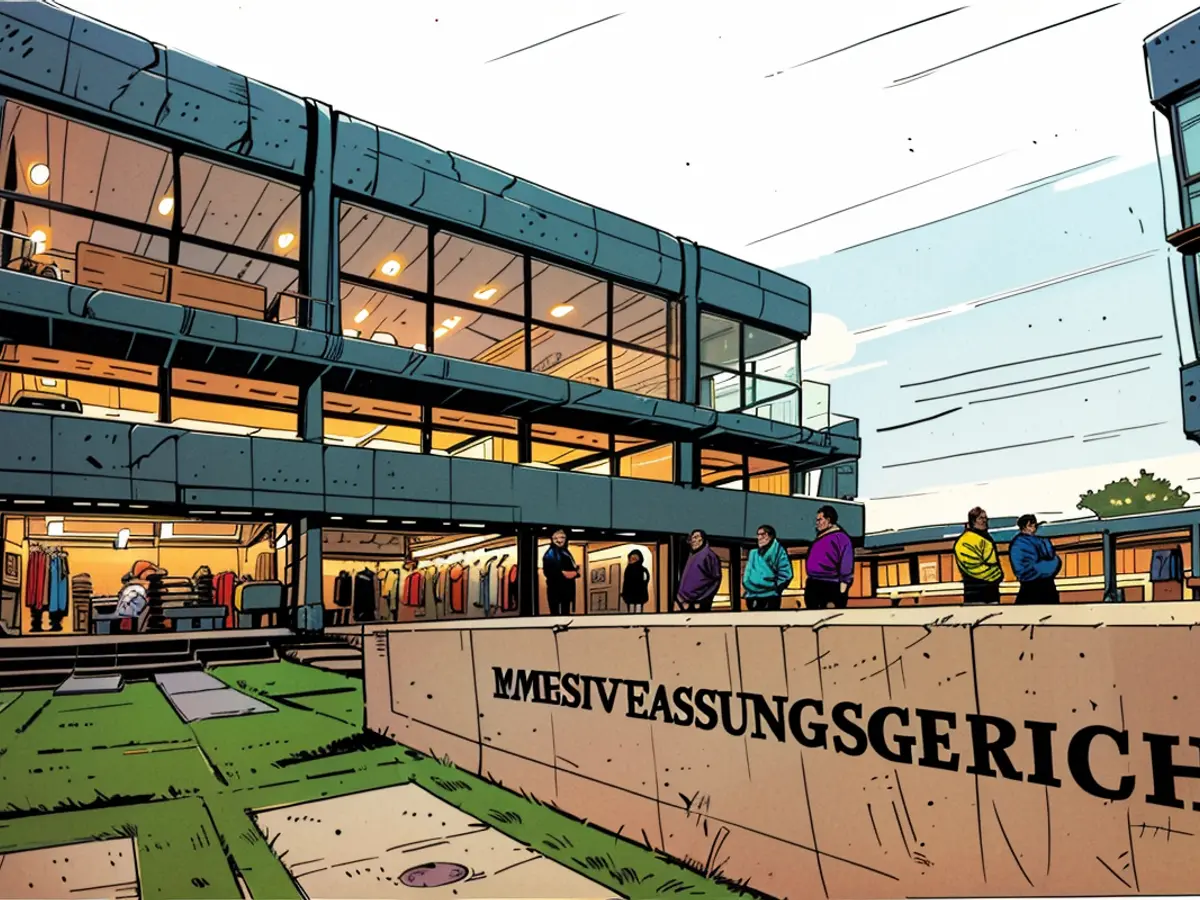Neo-Nazi party fails in Karlsruhe with complaint about torch ban at demonstration
In December 2016, members of the party barricaded themselves in the church tower. They hung a transparent on the parapet, and they lit pyrotechnics on the tower. A year later, in December 2017, the North Rhine-Westphalia branch of the party announced a so-called vigil. Eight torches were supposed to be lit - as many as the number of people who were prosecuted legally following the church occupation.
The police prohibited carrying and lighting torches, as a potential threat to public order was feared due to the "specific provocative effect" of the torches. The party unsuccessfully opposed this before the Administrative Court in Gelsenkirchen and in the appeal before the Higher Administrative Court in Münster. The courts declared that the assembly alluded to National Socialism and that the torches would evoke memories of the church occupation.
Against these decisions in North Rhine-Westphalia, the branch turned to the Federal Constitutional Court. It saw its freedom of assembly violated. However, the constitutional complaint does not clearly indicate how the fundamental right could be infringed, ruled a chamber of the First Senate in Karlsruhe. It was declared inadmissible and not decided upon.
- Despite the ruling by the Administrative Court in Münster, the Neo-Nazi party planned to proceed with their demo in North Rhine-Westphalia, citing a violation of their constitutional right to assembly.
- The Federal Constitutional Court in Karlsruhe rejected the Neo-Nazi party's constitutional complaint, stating that the court couldn't clearly discern how their fundamental right was being infringed.
- The Neo-Nazi party had initially announced a vigil with eight torches being lit, a number symbolizing those prosecuted after the 2016 church tower occupation, but the court argued that the torches alluded to National Socialism and could provoke memories.
- The Administrative Court in Gelsenkirchen and the Higher Administrative Court in Münster had previously agreed with the police's decision to ban torches, deeming the event as potentially disrupting public order due to the torch's specific provocative effect.
- The Pyrotechnics used by the Neo-Nazi party members in the church tower occupation in December 2016 sparked controversy and opposition, leading to legal challenges and restrictions on future demonstrations.







